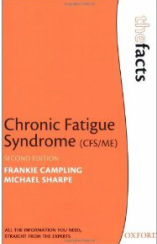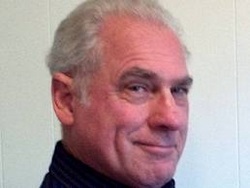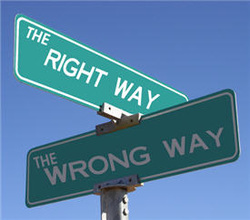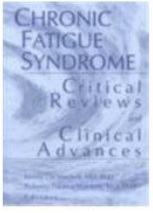
Insomnia was my first symptom. On February 16, 1987 I suddenly stopped sleeping. I went to my doctor, who raised a knowing eyebrow and said, “What's on your mind?” It was useless trying to convince her that I wasn't anxious about anything – except for not sleeping. My husband advised vigorous exercise, which only made matters much worse – and gave me a sore throat, muscle weakness, and other symptoms as well. It would be years before I connected the dots. The dots, although they eventually connected to CFIDS, also connected to my digestive system.
Charles Dickens always comes to mind when I think about insomnia. When confronted with the ghost of his dead associate, Jacob Marley, Ebeneezer Scrooge exclaims, “You may be an undigested bit of beef, a blot of mustard, a crumb of cheese, a fragment of an underdone potato. There's more of gravy than of grave about you ...” Poor sleep, we all know, can be caused by poor digestion. This, I believe, lies at the root of my insomnia. I cannot digest, therefore I cannot sleep.
The digestive impairments which have plagued me are clearly the villains here. They are also the reason that none of the prescribed remedies for sleep have worked. I have tried all of them. But finally, after 25 years of trial and error (mostly error) I have found something that works.
Unbelievably, it is Dr. Cheney's recommended sleep cocktail from way back in the 1980s – Sinequan and Klonopin. Dr. Cheney recommended 2 drops of liquid Sinequan on the tongue combined with .25 mg of Klonopin. I had tried this combo unsuccessfully several times. Although, of course, my insurance company substituted the generic equivalents. As it turns out, generic equivalents are not all created equal.
The generic “equivalent” of Sinequan, doxepin, only works if it is manufactured by Teva Pharmaceuticals, a company based in Israel. I discovered this interesting fact by accident. I had been taking up to 10 drops of doxepin manufactured by Morton Grove with minimal effect. But I was desperate enough to give doxepin another go, so when my prescription needed to be renewed I took a new scrip to the pharmacy. To my surprise, they gave me a glass bottle, not a plastic one, which is always a good sign. That night, I put one drop on my tongue, took 0.125 mg of clonazepam, and slept five hours straight. When I woke up, I repeated the dose – and, miraculously, slept again.
Apparently, CVS had switched to Teva as their source of doxepin, and through that happy accident of fate, I am now able to sleep better than I have in five years. I still don't sleep like a rock, but I am functioning at a higher capacity. I still believe that faulty digestion and sympathetic nervous system upregulation lie at the root of my insomnia. But the good news is that you don't need to have an iron constitution to get a decent night's sleep.
The moral to this story is: Recycle! Even if a treatment doesn't work for you now, it may, with a little tweaking, help you later.










 RSS Feed
RSS Feed
